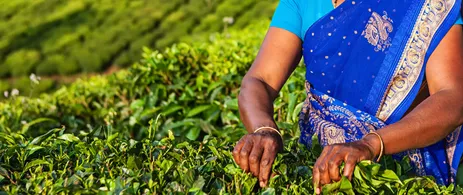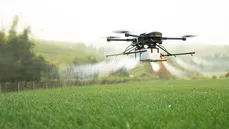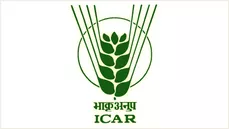
Agricultural technology and its continuous development are of utmost importance for India: The country has evolved from an agricultural economy to a service-based economy, and at the same time, the agricultural sector is currently the main source of income for nearly 60% of India's population. Agriculture is therefore one of the key sectors with enormous growth potential for the Indian economy. A significant contribution is made by rural women and rural enterprises. Mohaa Vyas, Senior Regional Manager India, provides insights into the latest developments.
In the face of global change, also in India one of the oldest industries has moved to embrace digitization and transformation. The agricultural technology sector has the potential to generate sales of around USD 24 billion by 2025. At this point, it is less than 1% of its market potential.

To create an efficient, resilient, and sustainable sector, major changes have been made in scaling, speed, productivity of agricultural equipment, and technological revolutions through AI, sensors, and analytics. A key result of this is that crops have been modified to grow in any environment, to grow faster, and to harvest better. In this context, food security also plays an important role – both for India and the entire world. In light of this, policymakers are keen to look for particularly viable ways to use technology in agriculture. Agricultural technology will play an important role in this.
Use of technology in agriculture in India
There are plans to equip the sector with advanced technologies such as IoT, AI/ML, and agricultural drones for aerial surveys in the near future. In providing these technologies to farmers, both Indian and foreign agri-tech companies will play an important role. Currently, there are only a few suppliers in the market, but they claim to serve around 267 million farmers in the country.
So there are definitely opportunities for both private sector and foreign companies to expand their brand in the country. The success of digital agriculture in India is likely to depend primarily on the technologies being cost-effective, access and operation being simple, maintenance of the systems straightforward, and the government driving development.
With the help of modern technologies, agriculture can improve its processes and manage and control its operations more easily in the future. This, in turn, will help reduce overall water consumption, avoid excessive use of pesticides and fertilizers in crop production, increase productivity and reduce production costs, prevent soil degradation, reduce environmental and ecological impacts, and improve the socioeconomic status of farmers.
Technological advances allow farmers to capture, visualize, and assess crop and soil health through various digital agriculture applications based on remote sensing, ground sensors, unmanned aerial photography, and market intelligence. This makes farming more cost-effective and convenient, and allows it to be used at different stages of production. If any problems occur during the process, they can be resolved promptly.
Systematic establishment of agricultural research associations

To promote development toward innovative agriculture, India has established one of the largest agricultural research systems in the world: the National Agricultural Research System (NARS), which includes the Indian Council of Agriculture Research (ICAR) institutes and the State Agricultural Universities (SAU). NARS is designed to help ensure India's self-sufficiency in food and to meet the country's needs for agricultural technologies and information.
As for ICAR, the panel supports agricultural startups, especially agritech startups that use innovative methods. The funding comes under the National Agriculture Innovation Fund (NAIF) project, which was launched in 2016/17. The project has two funding components: the Innovation and Incubation Fund and the National Coordination Unit (NCU). The mission of the ICAR Incubator is to provide services and technical support to agritech startups and entrepreneurs. Through 50 ICAR institutions, 818 startups have been supported to date, including those focused on agritech.
Introduction of special programs and improvement of technical equipment for farmers
The government also intends to implement targeted programs to promote innovation and agribusiness entrepreneurship. To this end, five expert centers and twenty-four agribusiness incubators have been established across India. Financial support is also provided to establish and develop startups in agribusiness and agritechnology. Under this program, 779 startups have already been established, operating in the fields of agriculture and agri-technology.
In addition to improving the technological capabilities of farmers and their machinery, the growth of the agricultural sector is also linked to diverse operations in supply chains – from production to processing and distribution to retail.
Supply chains and networks play a critical role in providing producers with access to markets and sales. They impact the economic, social, and environmental sustainability of agricultural-based communities.
The scope for introducing new technology-enabled innovations in the agricultural sector is therefore enormous. For generations to come, sustainability in agriculture will be paramount. After all, only through sustainable methods of innovative technologies can the availability of resources continue to be guaranteed to a sufficient degree.
TUM Global Week 2022: Joint panel discussion with TUM São Paulo
On the topic of Agritech, TUM Mumbai and TUM São Paulo had a joint event in the framework of TUM Global Week 2022 on this subject where they brought in expert speakers to talk about smart farming in both their respective regions. The speakers gave an talk on the focus areas with relation to innovation and research where they displayed their ideas and results to the audience.